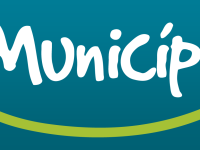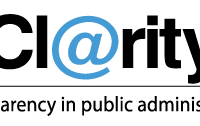We have launched the Citizens’ Packet to make Silesian Voivodeship Office (SVO) a more friendly and serviceable place for users. The core of the packet consists of practical facilitations for our clients who seek information or help. Our client-oriented solutions comprise diverse solutions on every level of our customer care and spread to every organisational unit in the SVO.
The Citizens’ Packet is available online via our brand-new official website.
Innovation Tag Opengov: transparency
As one of Open Government Partnership’s co-founders, Brazil has developed a new co-creation methodology to define the commitments of its National Action Plans (NAP). It has envisaged co-creation workshops with parity participation of experts from government and civil society in chosen themes. The initiative aimed to conciliate the watchful eye of civil society’s representatives and the technical eye of those actors who live the reality of the state administrative machinery to set…
Proactive Transparency initiative in Bosnia and Herzegovina is the first policy to address proactive disclosure of government information, co-created by the public institutions and civil society organisations. The result of of this collaboration was a policy document, 38 defined standard pieces of information, research conducted by civil society and improvement of government transparency.
My Municipality (Meu Município) a free public portal that organizes and makes available the financial performance of 90% of the Brazilian cities in a intuitive, user-friendly way. It is used for citizens to understand, monitor and compare how Brazilian municipalities collect and spend our money. My Municipality is also designed for public managers in their analysis and decision-making about the city's directions.
In a context where the channels between institutions and citizens have been broken by corruption, Día Blanco [White Day] is developed to promote bonds of trust and legitimacy among communities. In the last 3 years, more than 35,000 citizens have been mobilized by this innovative experience, which helps social organizations to inform their communities about their management and impact on local development through social accountability exercises.
The Electronic System for the Citizen Information Service (e-SIC) was developed to enable, in a cost-effective and efficient way, the reception and processing of access to information requests. The system facilitated the implementation of the Access to Information Act and serves as an essential tool for monitoring its implementation.
Case Study
Implementation of the Access to Information Act, Electronic System for the Citizen Information…
Law nº 12.527/2011, the Access to Information Act, has come to materialize, in practice, transparency mechanisms of public information predicted in the 1988 Brazilian Federal Constitution, and in other several international treaties.
The Law consolidates the understanding that public information is owned by society, not by public bodies that produce or keep it.
Reviewing and improving mechanisms of various processes, such as increasing transparency and knowledge management, were implemented.
Institutions in the Greek government upload their acts and decisions on the Transparency Portal. Each document is digitally signed and assigned a unique number ensuring that acts and decisions are not valid unless published online. An open data tool enables the re-use of published information. The direct accountability brought by means of the Portal upon the administration, provides fewer opportunities for corruption since citizens and interested parties can monitor the publications and report…




